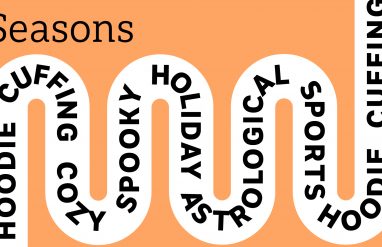Prepare your middle school kids for high school with these vocab activities
Do you have a middle-schooler preparing for high school? Challenge them with over 10 vocab activities designed for high school age students.
Learning about roots of words
Roots can form words in our current language by reconstructing original words from a parent language.
Learn more about roots of words by looking for some that come from Native American languages.
-
- Exploring Dictionary.com and and the slideshow above, identify 5 words that come from this language.
- Look up each word on Dictionary.com and provide a basic definition of the term in your words.
- Using the Origin section on each Dictionary.com definition page, identify when the word entered English.
- Answer the following questions about the word:
- What did the term mean in its original language?
- How might the term have come to be borrowed into English? (Use your knowledge of history along with internet searches.)
- Does it surprise you that this word comes from this language? Explain.
If you have younger siblings, teach them about some of the words you found with Native American roots. Then, explain to them why there are different Native American languages
Learning about word origins
All words originate from somewhere. Learn more about where certain words came from and why it’s important to understand their origins.
Watch some of these videos about the surprising origins of common words. What’s something new you learned after watching these videos?
Look at our Word of the Day page and read through some of the origins of these words. Can you explain how the origins tell us more about each word and its meaning? Write a couple of your explanations down in the Thesaurus.com Writing Tool.
Find words that originated in the Arabic language.
-
- Exploring Dictionary.com and the slideshow above, identify 5 words that come from this language.
- Using each word’s definition page, provide a basic definition of the term in your words.
- Using the Origin section on each Dictionary.com definition page, identify when the word entered English.
- Answer the following questions about the word:
- What did the term mean in its original language?
- How might the term have come to be borrowed into English? (Use your knowledge of history along with internet searches.)
- Does it surprise you that this word comes from this language? Explain.
Learning about prefixes and suffixes
A robust vocabulary isn’t just about knowing big words, as much as we love terms like vicissitude and eleemosynary. It’s also recognizing word elements—like prefixes, stems, and suffixes—and using knowledge of their meaning to help determine the meaning of other words containing those parts.
Build a word. Below are ten prefixes from Latin or Greek that are used in many words in English.
- Pick three prefixes.
- Look up the prefix on Dictionary.com by clicking the links above.
- Provide a basic definition of the prefix in your own words.
- Identify 3 other words that use the prefix.
- Provide a definition of each word in your own words.
- Using info in the Origin section on each Dictionary.com definition page and your knowledge about the prefix, explain what that word literally means.
- Briefly explain how you can use knowledge of the prefix to predict the meaning of other words you don’t know that feature the prefix.
Learning history terms
Learn about The Great Depression and how it relates to terms that describe our current economic condition.
Read this article to understand some context around The Great Depression, another moment in history that put a halt to activities around the globe.
Many people are dealing with economic issues caused by the Covid-19 virus. Some are being laid off or furloughed.
Film a video of yourself talking about how you think this moment will be recorded in history. How do you think it will be captured by historians and economists?
Bonus: Create a time capsule with objects collected around your house that captures the spirit of this moment for you. Find a place to store it or bury it with your family.
Alternate history terms activity
Read this slideshow to check your understanding of the terms found in the United States Constitution.
Try to list the amendments that directly affect you currently or will affect you in the future. Examples might include the right to vote. You can read about some of the amendments here:
You can search the other amendments in the Dictionary.com search box.
Bonus: Have each family member try to remember a line or amendment from the Constitution. See who can remember more information from this important document!
Learning about commonly confused words
There are many words that look alike or sound alike … but their meanings are not alike. Learn about some of the most confused words below.
Watch the following videos about words that commonly get confused with each other. Do you know the differences between them?
Read some more articles about commonly confused words that apply to current events. Read these articles below to find out the differences between these newsworthy words:
Take our Commonly Confused Words Quiz. What was your score?
Learning about generations
Read more about the different generational divides below and see which generation you fall into.
Read this slideshow on the different classifications of cultural generations. Which generation do you fall under? Do you agree with the descriptions given for each generation?
Watch this video about Generation Z and ask yourself if you agree with their opinions on the qualities of the generation.
WATCH: 5 Words To Describe Generation Z
What would you say if you recorded a video about your generation?
Go through this slideshow to see different quotes from different great minds about their respective generations. Which quote stands out to you or could fit the mentality of your generation?
Bonus: Identify each family member’s generation classification. Check off items that match each family member’s personality to show they are definitely a part of their unique generation. Ask them about specific things they associate with their generation as well.
Learning about homonyms
What are homonyms you ask? Read on to learn more about them plus homographs and homophones too.
Read this article about homonyms, homographs, and homophones.
Write out a list of these words that have multiple meanings.
-
- Cut out each word and tape each one onto different sides of a soccer ball.
- Take turns throwing the ball and see if you can come up with at least two different sentences using the word you land on.
Ask your parents if they know all of the meanings of some of the words you wrote down from the activity above. Think of consequences for any they get wrong!
Learning about indirect language
Indirect language and comedy go hand-in-hand. Improve your comedic skills by learning about these forms of indirect language.
Read the definition of sarcasm.
-
- Look up the synonyms for sarcasm on Thesaurus.com.
- An example of a sarcastic remark is: “Running on the treadmill is such a blast.”
- See if you can write a sarcastic joke. What makes it sarcastic?
Read the definition of satire.
-
- Read this slide to learn even more about it.
- Then read this slideshow about Dorothy Parker. She was the queen of satire.
- Can you create a satirical quote or remark?
Read the definition of irony.
-
- Read this slide to learn even more about it.
- Click on the related term dramatic irony to learn about a different type of irony.
- Read this article about irony. Can you write an ironic statement?
Bonus: Get a jar and some pompoms or buttons of different colors.
Assign a different color to every person in your family. Every time someone makes a sarcastic or ironic statement, that person has to put an item of their assigned color in the jar. Now you can see who makes the most sarcastic and ironic statements in one day!
- Hint: this also works with money! One person can get pennies, one nickels, etc. Whoever says the most (or least) remarks gets the money!
Learning about allusions
Learn more about the literary device of allusions by completing the activity below.
Read this article to understand what an allusion is.
-
- Read this slide to understand even more about it.
Look over a book or text you’ve read and find an allusion that may occur.
-
- What was the original source of the allusion. Look it up online to find out more about the original content.
Bonus: Watch a movie or TV show together and see if it makes allusions to any other stories or moments in history.
- Keep a running list and see who can catch the most.
Learning literary terms
These literary terms are staples of high-school English class. Do you know what they mean?
Watch this video to understand some common literary terms.
WATCH: This Or That: Simile vs. Metaphor
Read this slideshow to learn about more literary terms like alliteration and allegory.
-
- Try to find as many literary terms as you can in this collection of poetry by Dictionary.com users.
Write your own poem about a subject of your choice (e.g., love, war, quarantine, etc.).
-
- Include as many literary terms as you can fit!
Bonus: Have a poetry contest!
- Write down the different literary terms on slips of paper and place them in a container. Take turns drawing a slip and try to create an example poem using that literary term on the spot.





















